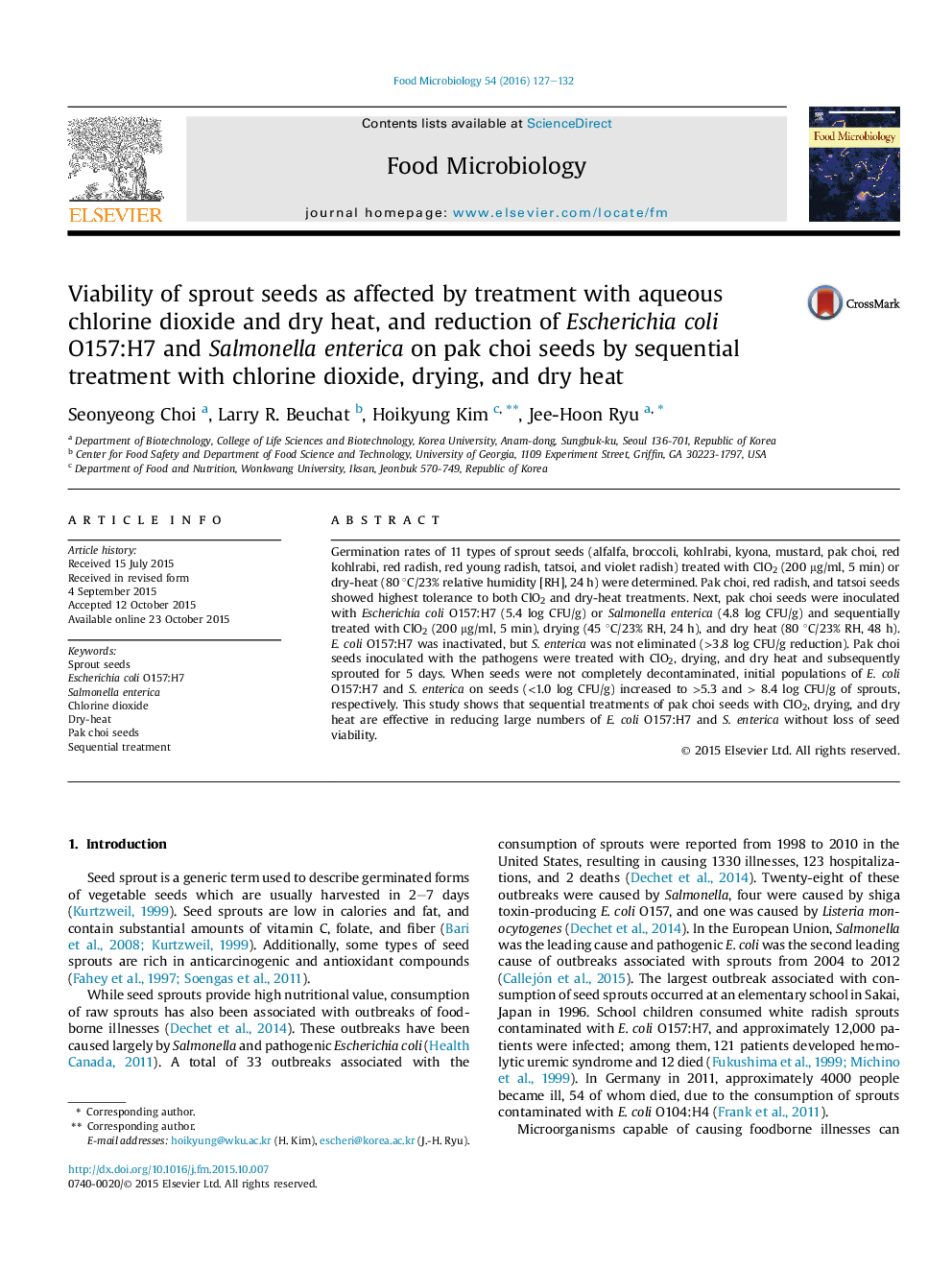| کد مقاله | کد نشریه | سال انتشار | مقاله انگلیسی | نسخه تمام متن |
|---|---|---|---|---|
| 4362636 | 1616247 | 2016 | 6 صفحه PDF | دانلود رایگان |

• Resistance of 11 sprout seeds against ClO2 and dry-heat treatment was evaluated.
• Pak choi, red radish, and tatsoi seeds showed high resistance to ClO2 and dry heat.
• ClO2, drying, and dry-heat treatments eliminated E. coli O157:H7 on pak choi seeds.
• Extremely low levels of pathogens on seeds increased significantly during sprouting.
Germination rates of 11 types of sprout seeds (alfalfa, broccoli, kohlrabi, kyona, mustard, pak choi, red kohlrabi, red radish, red young radish, tatsoi, and violet radish) treated with ClO2 (200 μg/ml, 5 min) or dry-heat (80 °C/23% relative humidity [RH], 24 h) were determined. Pak choi, red radish, and tatsoi seeds showed highest tolerance to both ClO2 and dry-heat treatments. Next, pak choi seeds were inoculated with Escherichia coli O157:H7 (5.4 log CFU/g) or Salmonella enterica (4.8 log CFU/g) and sequentially treated with ClO2 (200 μg/ml, 5 min), drying (45 °C/23% RH, 24 h), and dry heat (80 °C/23% RH, 48 h). E. coli O157:H7 was inactivated, but S. enterica was not eliminated (>3.8 log CFU/g reduction). Pak choi seeds inoculated with the pathogens were treated with ClO2, drying, and dry heat and subsequently sprouted for 5 days. When seeds were not completely decontaminated, initial populations of E. coli O157:H7 and S. enterica on seeds (<1.0 log CFU/g) increased to >5.3 and > 8.4 log CFU/g of sprouts, respectively. This study shows that sequential treatments of pak choi seeds with ClO2, drying, and dry heat are effective in reducing large numbers of E. coli O157:H7 and S. enterica without loss of seed viability.
Journal: Food Microbiology - Volume 54, April 2016, Pages 127–132